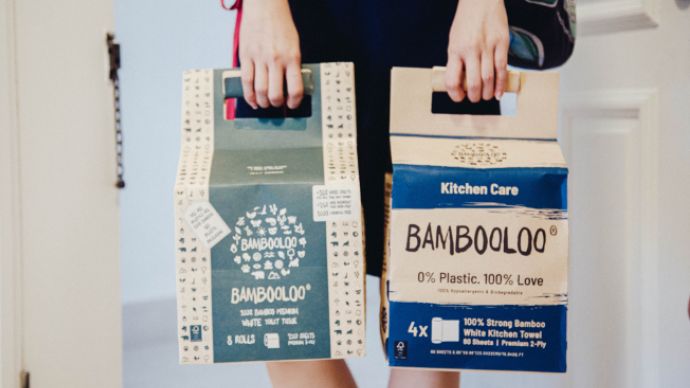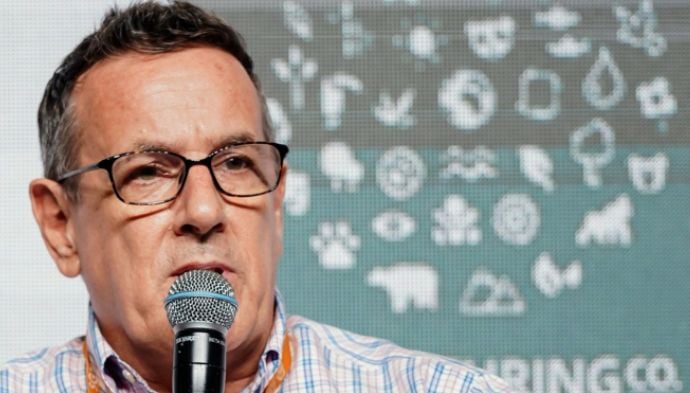
Bambooloo Products
Climate change is a serious problem. Governments and world leaders around the globe have acknowledged it and are taking active steps in addressing the menace.
The media is also actively reporting on the issue and has managed to successfully create awareness globally. The results have already started showing.
According to Pinterest, searches for “eco-friendly living” and “zero-waste products” have grown by 93 and 108 per cent in 2020. Additionally, conversations around sustainability on Twitter have also spiked by 285 per cent as of April 21, 2020, and this is unsurprising.
Consumers, especially Gen Z and millennials, are becoming environmentally conscious, which has put immense pressure on brands to respond positively.
But the key question is ‘how does one go from a traditional way of building a product to a more sustainable way of innovation’?
To find the answer to this question, e27 had a chat with David Ward, co-founder of Singapore-based The Nurturing Co. (TNC), which owns and operates sustainable plastic-free home goods brand Bambooloo.

David Ward
Behind the brand
TNC — originally started in the US in 2018 as a luxury toilet paper made from 100 per cent sustainable bamboo — aims to provide cost-effective, safer, healthier daily essentials that help reduce water usage, carbon impact, and slow deforestation.
When he originally started to create TNC, Ward knew little about sustainability. According to him, he landed in the industry by accident.
“I have always been an environmentally-driven person. Maybe, this is partly due to my father, who had grown most of our vegetables in our home and always had a “turn that light off, don’t run that tap” commentary based on an understanding that these resources were not infinite,” he narrates the story.
“After having spent more than 25 years in the fashion world, I wanted to spend my days on something I loved as a passion. So, on a Saturday morning in September 2013, I woke up with a mindset on doing something about this opportunity, having had the epiphany of creating a brand that would allow me to use all I had learned from the people I had worked with over the past 25 years in building international and fast-moving businesses but in the sustainable sector,” he recalls.
Also Read: Startup of the Month, December: Bambooloo by The Nurturing Co.
With a passion to inspire more innovators to create global sustainable brands, Ward wanted to build products that are good for the planet.
TNC’s flagship product is called Bambooloo, a range of sustainable consumer products made from virgin bamboo pulp sourced from bamboo groves in China. The products are made in Forest Stewardship Council (FSC)/ISO- certified manufacturing partner factories in the country.
Why the company chose bamboo as its main material, rather than trees that die immediately, is because they tend to grow back by more than a meter within a week.
Bambooloo expanded into Malaysia last year through its partner, Johor Bahru-based Starkers. Aside from Singapore and Malaysia, its products are also available in New Zealand.
Finding the product purpose
The first thing is to think about what you’re creating. Does it serve a purpose? Will people use it on a regular basis?
It would be great to replace single-use products, ideally with something that are reusable. If they’re not reusable, then they should ideally be made from materials that are less impacted when sourced and less harmful after use.
Create a benchmark for your product
We started our journey with a single heading on a piece of paper ‘NO PLASTICS’, and that was our benchmark.
Now the mindset is always one of excluding or reducing plastics at every point in the design process and on the consideration of the post-use material management — both for the consumer and for the repurposing and recycling of the material back into the supply chains.
Choose the right materials
Find substitutes for different materials like paper, bubble paper, or anything that is relevant to the product that you are creating. For example, grass paper can be a good substitute for paper, and pulp-tec is a good substitute for bubble paper that is normally used for packaging.
Also Read: Bambooloo raises US$250K+ via equity crowdfunding to expand its plastic-free home goods into UK
There are plenty of books and materials available online.
(Resources are provided at the end of this article.)
Leverage on building a community
Invest in finding ways to generate awareness about how your product combats climate change. Use social media to share facts about environmental concerns rather than just talk about the product.
Transparency is also important for a sustainable brand to build trust with consumers; there are many brands which claim to be sustainable but, in reality, are not.
Do not rely on others’ data or pull numbers from someone else’s website. Check it out for yourself and make sure that everything you say stands up.
How to price a sustainable product
While balancing between doing good and making money is difficult, there are some strategies that can help in pricing your sustainable business profitable.
TNC employs the use of subscription services for our customers because it not only builds trust with recurring consumers but also offers the company a predictable source of income.
Every product manager knows that packaging costs can add up, therefore TNC makes use of smart packaging to reduce its costs. Our products come in an eco-friendly box, which has a design inside that tells our consumers how they have positively impacted the environment.
Additional Resources –
Ward leaves several resources for readers to explore sustainability and innovation.
1. The Inconvenient Truth: A very uncomfortable documentary about the devastating effects of climate change
2. What Design Can Do: An inspiring talk on YouTube on what sustainable design can do
3. Crossing the Chasm: Book that focuses on the specifics of marketing high tech products during the early start-up period
4. Green Packaging Solutions: A book on recyclable packaging designs
5. Crushing It: Podcast on a variety of leaders from across the financial services industry on finding success in multiple areas of life, career, mental well-being, and physical health
6. Disrupt: Book for identifying and executing disruptive business opportunities
—
Image Credit: Nurturing Co.
The post Bambooloo on creating everyday low carbon footprint products that save the planet appeared first on e27.

